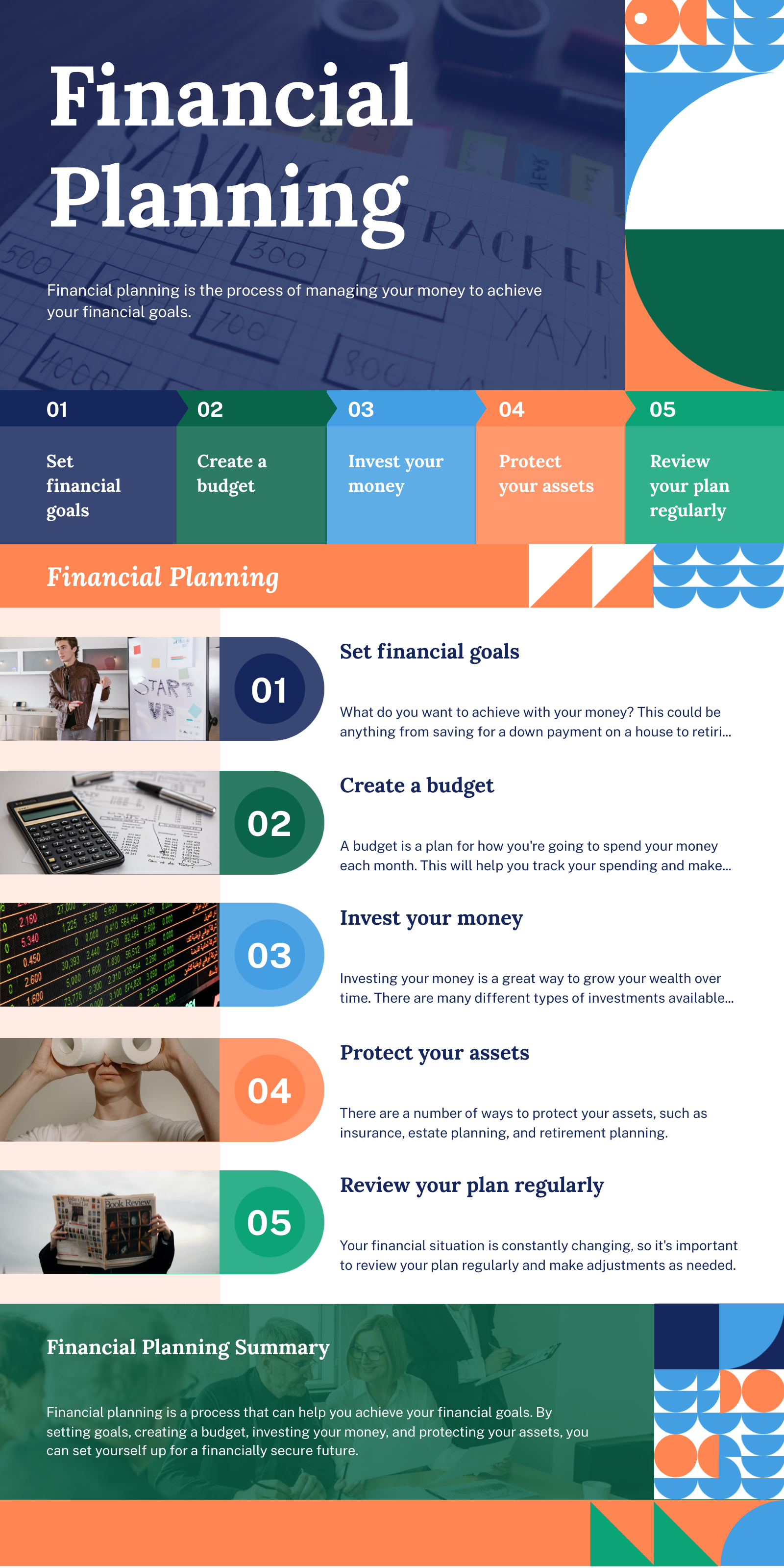The allure of a quick financial solution may lead you down the path of payday loans, but did you know that they can trap you in a cycle of debt? Fortunately, there are financial strategies and responsible borrowing habits that can help you build credit, make smart financial planning decisions, and secure a financial future without resorting to payday loans. This article will guide you through essential information and practical tips to help you avoid payday loans and pave your way to financial stability.
Key Takeaways
- ƒLearn the true cost of payday loans, including exorbitant interest rates and debt trap risks.
- Discover the underlying psychology behind payday loan usage and who’s most likely to fall prey to these high-cost loans.
- Comprehend the impact payday loans can have on your credit and the dangers of debt collection.
- Explore effective alternatives to payday loans, such as small loans from credit unions or early payday apps.
- Develop healthy financial habits like budgeting and saving to protect yourself from high-interest debt.
- Understand the importance of a strong support system and use technology to efficiently manage your finances.
- Embrace credit education to ensure informed borrowing choices and long-term financial well-being.
Understanding the True Cost of Payday Loans
While payday loans may appear as an enticing solution for urgent financial needs, the true cost associated with these high-interest loans is often concealed. It’s essential to grasp the reality behind the annual percentage rate (APR), the compounding effects of rollovers, and how this type of borrowing can harm your credit.
On average, payday loans come with an effective APR of 300% to 500% – significantly higher compared to other forms of credit.
The Exorbitant APR of Payday Loans
When compared to other credit options like credit cards and personal loans, which typically have much lower APRs, payday loans stand out for their exorbitant interest rates. These sky-high rates make payday loans an expensive choice, often trapping borrowers in a vicious cycle of debt as they struggle to keep up with ballooning loan costs and escalating fees.
The Debt Cycle Associated with Payday Loan Rollovers
Another factor contributing to the true cost of payday loans is the common practice of rolling over, or renewing, the loan. This occurs when a borrower is unable to repay the loan by the due date, and the lender agrees to extend the term, often charging additional fees. Each time a loan is rolled over, the overall cost increases, adding to the borrower’s debt and making it even more challenging to escape from the grip of payday loan fees.
In conclusion, high-cost borrowing through payday loans, alongside other factors such as exorbitant interest rates and debt cycles, makes these loans a risky and potentially damaging choice for consumers. It’s crucial to explore alternative solutions to address urgent financial needs and work towards fostering healthy credit habits.
The Psychology Behind Payday Loan Use
Payday loans are often utilized by individuals with limited access to other credit sources. The reasons behind their continued popularity lie in consumer psychology and the situations in which people find themselves. In this section, we will explore why people choose payday loans even though they are aware of their high costs and the demographics most likely to use them.
Why Consumers Choose Payday Loans Despite High Costs
The primary driver for payday loan use is the immediate need for cash, often resulting from unforeseen circumstances or emergencies. When faced with urgent expenses, such as rent, utilities, or medical bills, some consumers may have no other choice but to turn to payday lenders. These cash advances provide quick access to funds when traditional consumer credit options might be unavailable due to poor credit or other past financial problems.
Many borrowers are fully aware of the high costs associated with payday loans, but the urgency of their situation combined with the convenience offered by payday lenders makes the option more appealing than waiting for a traditional loan approval or seeking alternative sources of financial assistance.
Demographics Most Likely to Use Payday Loans
When looking at the demographics of payday loan users, it becomes clear that the majority of borrowers come from lower-income backgrounds. These financially strapped customers might have limited access to mainstream banking services, making payday loans more appealing. A significant percentage of payday loan users are mainstream workers, who might need quick financial help to cover essential recurring expenses.
A few demographic factors also show a correlation with payday loan usage, such as income level, employment situation, and age group. People between the ages of 25 and 49, who work full-time jobs but earn low incomes, are more likely to resort to payday loans than older individuals or those with higher incomes.
In conclusion, understanding the psychology behind payday loan use and the demographics of those who borrow from payday lenders can shed light on ways to prevent individuals from resorting to this high-cost form of credit. By addressing the root causes of financial insecurity, individuals can be better equipped to avoid falling into the payday loan trap.
How Payday Loans Can Affect Your Credit
Payday loans may not directly impact your credit score since they often don’t require a credit check. However, failing to repay such loans can lead to indirect consequences on your credit. Borrowers who default on payday loans face the risk of their debt being turned over to collection agencies, resulting in negative entries on their credit reports and ultimately affecting their borrowing capacity and credit history.
The Indirect Impact on Credit Scores
When a payday loan goes into default, the lender may turn the debt over to a collection agency. This action often leads to a negative entry on the borrower’s credit report, affecting their credit score. Additionally, the default may be reported to credit bureaus, which can have a lasting impact on the borrower’s ability to secure credit in the future.
Payday loans themselves might not impact your credit score directly, but failing to repay them can have serious indirect consequences on your credit.
Dealing with Debt Collection from Payday Loans
It’s crucial to address overdue payday loan debt promptly to avoid escalation and involvement of debt collection agencies. If you fear you might struggle to repay your payday loan, consider taking the following steps:
- Negotiate with your payday loan lender for an extended repayment plan or reduced interest rate.
- Seek professional debt counseling from a reputable organization.
- Create a budget and strategize a plan to reduce expenses and increase income.
- Consult with legal advisers on local resources for debt assistance and consolidation programs.
By taking proactive measures to address overdue payday loan debt, you may be able to prevent the negative impact it could have on your credit score and future borrowing capacity.
Avoid Payday Loans: Effective Alternatives to Consider
Payday loans may appear as convenient short-term financial solutions, but they can lead you to a debt trap due to their exorbitant costs. Fortunately, there are several alternatives to payday loans that can help you navigate through financial gaps without getting burdened by excessive interest rates and fees. By exploring these alternatives, you can make informed borrowing choices and avoid the pitfalls of high-interest payday loans.
Some noteworthy alternatives include:
- Small loan options from credit unions
- Community programs that assist in fair credit and financial management
- Debt management plans
- Early payday apps as short-term financial solutions
Credit unions
Credit unions are a popular choice for those in need of small loans, as they usually provide favorable terms and often accommodate borrowers with less than perfect credit scores. Besides offering lower interest rates, credit unions are community-based organizations, focusing on member support, and extending financial guidance to their members.
Community programs
Many community programs and nonprofit organizations offer financial assistance and resources to individuals experiencing financial hardships. These programs may provide services such as financial counseling, budgeting assistance, and access to essential resources, all of which can help you manage your financial situation better and steer clear of high-cost payday loans.
Debt management
For those struggling with multiple debts, a debt management plan can be an effective alternative to payday loans. Debt management plans involve working with a credit counseling agency to develop a strategy for repaying your existing debts, typically at negotiated reduced interest rates. This approach can help you manage your finances more effectively and avoid further debt accumulation due to payday loan costs.
Early payday apps
Early payday apps have emerged as a responsible alternative to payday loans in recent years. These financial technology platforms provide quick access to small advances on your upcoming paycheck, often at lower fees compared to payday loans. As part of a short-term financial plan, early payday apps can help alleviate financial pressure without resorting to high-interest payday loans.
Exploring these diverse alternatives to payday loans and weighing their benefits can put you on a path toward improved financial wellness. By selecting appropriate short-term financial solutions that align with your current needs and long-term financial goals, you can build a more secure financial future and steer clear of the dangerous cycle of payday loan debt.
Building Healthy Financial Habits
Establishing healthy financial habits is essential for maintaining control over your finances and avoiding high-cost borrowing options such as payday loans. By practicing diligent budget management and setting up emergency savings, you can better handle your monthly expenses and unexpected financial needs, providing you with a safety net that allows you to resist the temptation of short-term, high-interest loans.
Creating a Budget to Manage Expenses
One of the first steps towards financial stability is creating an effective budget to manage your expenses. This involves tracking your income and expenses to obtain a clear understanding of your financial situation. To build a solid budget, consider the following steps:
- Identify all sources of income
- Itemize and categorize your expenses
- Set spending limits for each category
- Monitor and adjust your budget as needed
Spending control is a critical component of budget management. By closely following your budget and making necessary adjustments, you’ll be better equipped to handle financial pitfalls without resorting to payday loans.
Setting Up Emergency Savings
Having emergency savings set aside can act as a financial buffer in times of crisis, such as an unforeseen expense, job loss, or medical emergency. Here’s a step-by-step guide to help you set up an emergency savings plan:
- Open a separate savings account for your emergency fund
- Determine how much you would like to save (aim for at least three to six months’ worth of living expenses)
- Create a payment plan to deposit money into your emergency fund on a regular basis, such as after each paycheck
- Avoid withdrawing from the account unless it’s a genuine emergency situation
Consider using a payoff calculator to help you determine how long it will take to reach your savings goal. By steadily building your emergency savings, you’ll be able to navigate unforeseen financial obstacles without relying on high-cost loans.
Credit Unions: A Friendlier Option for Small Loans
Having a tough time acquiring a small loan due to insufficient credit history or poor financial standing? Don’t fall trap into the tempting convenience of payday loans—there is a much friendlier alternative waiting for you: Credit unions. These community-based financial institutions provide a wide range of accessible financial services, focusing on member support and tailored solutions for your needs.
Exploring Personal Loan Options at Credit Unions
Credit unions are known for their specialized personal loans that cater to individuals with different financial backgrounds—even those looking for a loan with bad credit. Unlike traditional banks, credit unions consider factors beyond your credit score, assessing your overall financial situation and capacity to repay the loan. This conscientious approach allows borrowers with less-than-perfect credit scores a chance to obtain loans at reasonable rates and terms.
Benefits of Credit Union Membership
There’s more to credit unions than just loans. As a member, you gain access to a whole suite of other financial services and benefits that can aid you through your financial journey:
- Lower interest rates on loans and credit cards
- Higher interest rates on savings accounts
- Lowered or waived fees on various services
- Financial counseling and education resources
- Membership in a tight-knit community for support and networking
Becoming a member of a credit union opens doors to a community-oriented banking experience that prioritizes your financial well-being. With their emphasis on providing accessible and fair financial services, credit unions present a viable solution for obtaining small loans without resorting to high-cost payday loans—allowing you to better manage your finances in the most responsible way.
Seeking Help from Nonprofit and Community Programs
When facing financial insecurity, reaching out for assistance from nonprofit organizations and community programs can provide the support you need. Various services and resources are available through these avenues, catering to those who may struggle with high-interest loans.
Let’s explore some of the services and options offered by these organizations that can help you steer clear of high-priced loans:
- Debt consolidation loan: Combining multiple high-interest debts into a single, lower-interest loan can provide much-needed financial relief and make debt repayment more manageable.
- Community resources: Local government agencies, churches, and charities often provide community resources such as bill-payment assistance and food or clothing pantries for individuals in need.
- Nonprofit assistance: Nonprofit organizations often offer financial counseling, credit workshops, and personalized advice to help individuals better manage their finances.
One notable organization that can help guide you toward responsible financial management is the Consumer Financial Protection Bureau (CFPB). This agency offers a wealth of informative resources, tools, and protections aimed at empowering consumers to make informed financial decisions.
“The mission of the Consumer Financial Protection Bureau is to make consumer financial markets work for consumers, responsible providers, and the economy as a whole.” – CFPB
Do not hesitate to reach out for help, as these services and programs exist to assist those who face financial challenges. By utilizing local services and nonprofit assistance, you can effectively avoid high-cost loans and take decisive steps toward a more secure financial future.
The Role of Banks in Offering Small-Dollar Loans
Recent regulatory changes have allowed banks greater freedom to offer small-dollar loans, proving to be a more responsible alternative to payday loans for low-income borrowers. This comes amid the potential reevaluation of these regulations by bodies such as the Federal Office of the Comptroller of the Currency and the Consumer Financial Protection Bureau (CFPB). Banks may emerge as key players in providing fair, accessible loans to those in need of short-term financial solutions.

Recent Changes in Banking Regulations
Changes in banking regulations have resulted in financial institutions having greater leeway to offer small-dollar loans, which are designed for those seeking short-term financial support. These loans can range from a few hundred to a few thousand dollars, assisting low-income borrowers to meet their immediate financial obligations without being ensnared in a high-interest debt trap typically associated with payday loans.
Potential Benefits of Bank-Issued Small Loans
Bank-issued small-dollar loans can help borrowers avoid the pitfalls of payday loan debt by offering more consumer-friendly alternatives. Here are a few notable benefits of these types of loans:
- Lower interest rates: Banks usually offer lower interest rates on small-dollar loans compared to traditional payday lenders, making them a cost-effective option for cash-strapped borrowers.
- Flexible repayment terms: These loans often have more accommodating terms, which can include longer repayment periods, easing the burden on borrowers.
- Additional services: Banks can also provide financial education and resources to help borrowers make well-informed decisions and manage their finances more effectively.
- Building credit: By extending small-dollar loans, banks help borrowers establish and maintain better credit scores, improving their overall financial health.
As regulatory bodies, like the Federal Office of the Comptroller of the Currency and the CFPB, continue to evaluate the banking regulations, it is evident that banks can play a significant role in providing accessible and responsible lending options for those seeking short-term financial relief.
Early Payday Apps and Their Advantages
Thanks to advances in financial technology, early payday apps have emerged as a responsible alternative to traditional payday loans. These apps provide paycheck advances or small amounts of money based on your future income, frequently at lower costs than payday loans. As a short-term financial solution, they can quickly grant you access to funds without the crippling high-interest rates associated with conventional payday lending.
There are several advantages of using early payday apps, some of which are summarized below:
- Lower fees: Early payday apps generally charge little to no fees, whereas payday loans can include hefty costs.
- Convenient access: Applying for a paycheck advance through an app is typically faster and more convenient than visiting a payday lender.
- No impact on credit score: Unlike payday loans, early payday apps often don’t affect your credit, promoting responsible borrowing.
- Flexible repayment: Apps often allow for more flexible repayment options based on your needs and schedule.
Early payday apps compared
Although early payday apps may not be a one-size-fits-all solution, they are an increasingly popular choice among users seeking a short-term alternative to payday loans. The table below compares some popular early payday apps alongside traditional payday lenders and online banks offering short-term loans:
| Provider | Type | Fees | Repayment Terms | Impact on Credit Score |
|---|---|---|---|---|
| Early Payday App A | Early Payday App | Low or no fees | Flexible | Minimal or none |
| Early Payday App B | Early Payday App | Low or no fees | Flexible | Minimal or none |
| Online Bank A | Online Bank | Varies | Fixed | May affect credit score |
| Payday Lender A | Payday Lender | High fees | Fixed | Potentially negative impact |
In conclusion, early payday apps can offer a more responsible option for short-term financial planning, providing immediate access to funds without the high costs of payday loans. By considering these apps as part of your financial toolkit, you’ll be better equipped to navigate the complexities of responsible borrowing and minimize your reliance on traditional payday lenders.
Practical Tips for Dealing with Immediate Financial Shortfalls
Whenever you face an immediate financial shortfall, it might feel overwhelming and challenging. However, you can take some proactive steps to address these pressing financial demands without resorting to high-interest payday loans. Here, we’ll share some practical tips on negotiating payment plans with creditors and exploring side hustles to bridge the income gap.
Negotiating with Creditors for Payment Plans
An open and honest conversation with your creditors can go a long way in dealing with financial difficulties. Reach out to them as soon as you realize making full payments on your debts will be a challenge. Explain your current financial situation and ask about the possibility of setting up a payment plan. In many cases, creditors are willing to work with you to develop a more sustainable debt repayment plan to avoid defaults and, ultimately, the need for collection actions.
Side Hustles to Bridge the Income Gap
While addressing your cash flow management, it’s essential to explore ways to increase your income and bridge the income gap. Consider picking up a side hustle to supplement your primary income. A side job can provide you with additional funds that can be put towards covering your day-to-day expenses or paying off existing debts. Some popular side hustle options include:
- Freelance work in writing, graphic design, or programming
- Driving for rideshare services like Uber or Lyft
- Offering tutoring or teaching services
- Selling handmade crafts or vintage items on online marketplaces like Etsy or eBay
- Pet sitting or dog walking
Exploring side hustles not only offers a way to increase your income, but it also provides you with valuable experience and skills that may lead to better job opportunities in the future.
In conclusion, it’s crucial to approach immediate financial shortfalls with a proactive attitude and explore all possible solutions without relying on high-cost payday loans. By considering alternative options like negotiating payment plans with creditors or engaging in side hustles, you can better manage your finances and avoid the potential consequences of high-interest borrowing.
Safeguarding Your Financial Future with Credit Education
Ensuring a stable financial future requires a solid understanding of credit. By investing time and effort into credit education, you can develop stronger financial literacy, which can help you avoid high-interest debts like payday loans and better manage your finances. In this section, we will delve into the importance of understanding credit scores and reports, as well as the benefits of conducting regular financial reviews.
Understanding Credit Scores and Reports
Your credit score is a number that represents your creditworthiness; higher scores reflect responsible credit behavior, while lower scores signal potential risks to lenders. Credit reports are detailed records of your credit history, including loans, credit cards, and any outstanding balances. Both credit scores and credit reports play a crucial role in your financial health, as they affect your ability to obtain loans, interest rates, and even job opportunities. Gaining knowledge about your credit scores and reports can help you make more informed financial decisions in the future and take control of your credit repair process.
The Importance of Regular Financial Reviews
Conducting regular financial reviews is an essential aspect of maintaining positive credit health. This includes an annual credit check to review your credit reports from the three main credit bureaus (Equifax, Experian, and TransUnion), which you are entitled to receive for free under US law. Regular financial reviews allow you to:
- Monitor your credit report for any errors or discrepancies that might harm your credit score.
- Track your progress in addressing past financial issues and repairing your credit.
- Identify opportunities to improve your credit score, such as reducing debt or diversifying your credit accounts.
- Stay motivated to maintain responsible financial habits that promote long-term credit health.
In conclusion, investing in credit education and financial literacy is vital to safeguarding your financial future. Understanding credit scores and reports, along with conducting regular financial reviews, can empower you to make smarter financial decisions, avoid the pitfalls of high-interest debts, and pave the way for long-term financial stability.
The Importance of a Support System in Financial Planning
A reliable support system can play a pivotal role in financial planning by providing both practical and emotional assistance. Whether you turn to friends and family for temporary help or seek professional advice from financial counselors, these networks can help you navigate financial uncertainties and avoid costly borrowing.

How Friends and Family Can Help
When facing financial challenges, peer support from close friends and family can be invaluable. They might offer temporary financial assistance, share their own experiences, or provide guidance and encouragement. By leveraging these strong relationships, you can gain insight into financial strategies, discover debt management advice, and learn from the successes and failures of others.
Professional Financial Advice and Counseling
For those seeking expert direction, professional financial advice and financial counseling can be highly beneficial. These services can assist in the development of solid financial plans, mitigating the need for high-interest loans. Financial professionals have the expertise to provide tailored plans that cater to your unique circumstances, goals, and priorities while helping you overcome challenges and implement key financial strategies.
Don’t underestimate the power of a strong support system when it comes to financial planning. Both friends and family and professional advisors can provide knowledge, encouragement, and resources that will empower you to make informed financial decisions and work towards a stable financial future.
Using Technology to Stay Ahead of Your Finances
In today’s world, technology has become our best ally in managing our finances. By leveraging financial technology in the form of planning apps, budgeting tools, and online platforms, you can gain better control over your finances and avoid the pitfalls associated with payday loans. In this section, we dive into some popular personal finance software options and online budgeting platforms that can make a significant impact on your spending management.
Financial Planning Apps and Tools
There is a myriad of financial planning apps and tools available to help you monitor and manage your finances more effectively. Some popular personal finance software options include Mint, YNAB (You Need a Budget), and Quicken. These user-friendly applications allow you to track your spending habits, create budgets, and set financial goals, ultimately enabling more proactive spending management.
Online Budgeting Platforms to Manage Spending
In addition to dedicated apps, numerous online budgeting platforms have emerged to help individuals manage their spending more effectively. Some of these platforms, such as Tiller Money and PocketGuard, link directly to your bank accounts, offering real-time insights into your spending and upcoming bills. This way, you can make informed financial decisions and stay ahead of any potential financial pitfalls.
Below is a table comparing some of the popular financial planning apps and online budgeting platforms:
| Platform | Features | Cost |
|---|---|---|
| Mint | Budgeting, bill tracking, credit score monitoring, investment tracking | Free |
| YNAB (You Need a Budget) | Customizable budgets, goal tracking, real-time access to account balances | $11.99/month or $84/year |
| Quicken | Detailed budgeting, debt tracking, investment monitoring, bill management | Starting at $35.99/year |
| Tiller Money | Automated budgeting spreadsheets, customizable templates, financial goal setting | $79/year |
| PocketGuard | Spending categorization, bill tracking, savings goals, personalized insights | Free or $4.99/month for Plus version |
With the help of financial technology, staying on top of your finances has never been easier. By using planning apps, budgeting tools, and online platforms, you can better manage your spending, avoid high-interest debt, and pave the way towards a more secure financial future.
Conclusion
Committing to long-term financial wellness involves making informed choices about how you handle your money. One key aspect of this commitment is finding ways to avoid payday borrowing and instead, pursue smarter money decisions. With proper education on the alternatives to these high-cost loans and their consequences, you are better equipped to make fiscal decisions that foster responsibility and stability.
Building healthier financial habits, such as paycheck management and exploring the various loan options offered by institutions like credit unions, banks, and nonprofit organizations, can help you establish and maintain fiscal responsibility. By doing so, you empower yourself to make informed borrowing choices that lead to better management of your finances and avoid unnecessary debt traps.
Embracing the power of technology in personal finance, surrounding yourself with a supportive network of friends, family, and professionals, and staying informed can all contribute significantly to the improvement of your financial health. By being proactive and mindful about your spending and borrowing habits, you can pave the way for a more stable and prosperous financial future free from the risks associated with payday loans.




